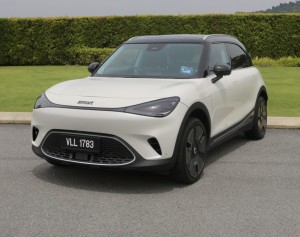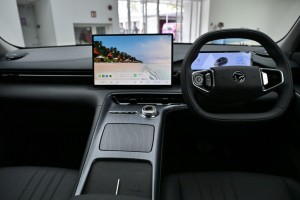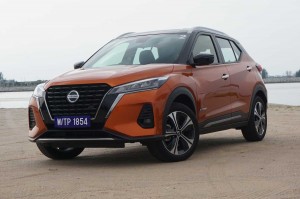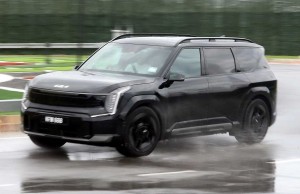KUALA LUMPUR: The Malaysian Automotive Association (MAA), which has revised downwards its vehicle sales forecast by 5.6% to 500,000 units this year, is projecting a tough second half for the industry as businesses continue to be affected by the ongoing nationwide movement restrictions.
MAA president Datuk Aishah Ahmad (pic below) said another downward revision to its 2021 forecast would be inevitable if automotive original equipment manufacturers (OEMs) and dealers are continued to be barred from operating.
“Our current revised forecast is based on the assumption that the local automotive industry will be able to resume operations from August. If that does not happen, we may need to revise our targets again.
“We are very concerned,” she told the media during a virtual press conference yesterday.
Tentatively, automotive OEMs and dealers are likely to get the green light to operate under phase three of the National Recovery Plan, which Aishah said might be too long a wait for some players in the industry.

“The business closures in May and June did not help. On top of that, the government has said that sales and production under phases one and two are not allowed. When that happens, it will spill over to the next few months.”
Aishah said that most OEMs will be able to sustain during the current lockdown.
However, for the dealers, especially the smaller ones, it has been tough.
“Many have indicated that if the lockdown continues for at least another month, they will have to close shop.
“We have sent several appeals to the government to let them know why it’s important to allow operations to continue with strict standard operating procedures in place.”
Year-to-date June 2021 vehicle sales rose 44% to 249,129 units from 173,545 units in the previous corresponding period, due to the low base effect in the first quarter of last year when sales were disrupted by the movement control order.
A total of 1,921 vehicles were sold last month, with all units comprising spill-over registrations from end-May 2021.
Aishah added that vehicle sales for July would also be severely impacted by the ongoing lockdown.
On a positive note, Aishah said the ongoing sales tax exemption, which had been extended to the end of this year, is a welcome relief to the local automotive industry.
“The only good news is that the sales tax exemption is still there and the orders are coming, but we cannot deliver as plants and showrooms cannot operate.”
Under the vehicle tax exemption, locally-assembled cars are exempted from the sales tax while for imported cars, the sales tax has been reduced from 10% to 5%.
However, as consumers have been unable to enjoy the perks of the sales tax exemption due to months of lockdown, Aishah is hopeful that the government will consider extending the tax holiday into next year.
“As businesses have been impacted for several months, we’re hoping the sales tax exemption will be extended for at least another six months next year.”
As dire as the situation might be, Aishah said the environment was worse during the Asian Financial Crisis in 1997 and 1998.
“The Asian Financial Crisis was terrible, as most players did not have the financial means to sustain.
“At the time, because the banks were not willing to give out loans, what many OEMs did was they released vehicles to the dealers even without down payments.
“If the dealers had property, we used the grants of the property as collateral. The current situation is still not as adverse as the Asian Financial Crisis.

“At the moment, the sector is dampened because of the sales and business restrictions,” she said.
The Malaysian automotive industry is also feeling the ripple effects of the global chip shortage.
Aishah said many local car manufacturers have been affected.
“Some are worse off than others. We expect the chip shortage to persist for three to four more months as we’re not able to get the supplies from overseas. We’re hopeful that the situation will improve by the third quarter of this year.
“But it’s not just overseas. Even in Malaysia, some of the producers who are manufacturing the component parts for the chips have been getting calls from OEM manufacturers overseas who are concerned about the supply disruptions,” she said.
The Covid-19 pandemic saw a surge in the demand for personal electronic items such as cell phones and laptops, which eventually led to a shortage of chips worldwide as production could not keep up with demand.












